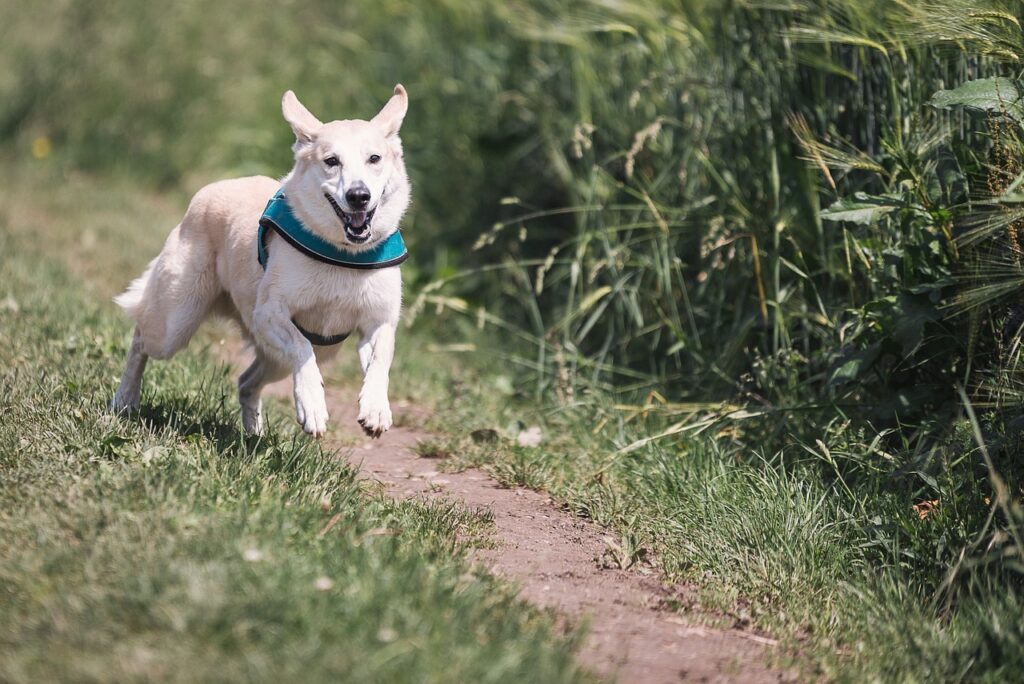Can Dogs Eat Pickles? – No, They can’t
Pickles might be a tasty treat for humans, but when it comes to our canine friends, it’s a different story. No, dogs can’t eat pickles safely. The main concern with feeding pickles to dogs arises from the high sodium content and the spices and herbs often used in the pickling process, which can be harmful to a dog’s health. Pickles can also contain garlic and onion, which are toxic to dogs. Therefore, it’s best to keep pickles away from your furry buddy.
Can Puppies Eat Pickles?
Just like adult dogs, puppies should not eat pickles. In fact, for the developing digestive systems of puppies, pickles could be even more dangerous due to their sensitive nature. The small body size of a puppy also increases the risk as the same amount of pickle would have a larger impact compared to an adult dog.
Things to consider when feeding pickles to puppies?
It is imperative to keep pickles out of your puppy’s diet. The high salt, vinegar, and spices can lead to digestive issues and potentially cause dehydration or sodium ion poisoning. As puppies are still growing, a balanced diet is crucial, and pickles offer no nutritional benefit that would justify their risks.
Nutritional Benefits of Pickles for Dogs – Why Pickles are Not Good for Dogs?
No Nutritional Benefit to Justify Risks
The risks that pickles pose to dogs far outweigh any potential benefits. Pickles might contain some vitamins and minerals, but they are also high in sodium and could include harmful seasonings. It’s important to emphasize that dogs don’t need and should not have pickles in their diet.
Potential Allergies: Can Dogs Be Allergic to Pickles?
While allergies to pickles in dogs are not common, the more significant risks associated with pickles come from ingredients that are often found in them, like onions and garlic, which are toxic to dogs, not to mention the excessive salt content.
Symptoms of Pickle Allergies in Dogs
- Gastrointestinal upset: Symptoms such as vomiting or diarrhea can occur if a dog is sensitive to pickles.
- Skin irritation: Watch for any unusual itching or hives that could indicate an allergic reaction.
- Difficulty breathing: This is a severe reaction that requires immediate veterinary attention.
What to Do If Your Dog Shows Symptoms?
- Stop feeding pickles: If you suspect your dog has eaten pickles and is showing symptoms, remove any pickle access immediately.
- Consult your veterinarian: They can provide appropriate guidance and treatment if necessary.
- Monitor closely: Keep a close eye on your dog for any progression in symptoms and report these to your vet.
Recommended Amount: How Much Pickles Can a Dog Consume?
Due to the risks outlined above, it’s recommended that dogs should not consume pickles. The potential health issues, especially from the high sodium content and potentially toxic ingredients, make them unsuitable for canine consumption.
Things to Consider When Feeding Pickles to Dogs
Aside from the fact that dogs should not eat pickles, if you’re considering feeding any human food to your dog, always do so with caution and in consultation with your vet. This is particularly critical for foods that contain spices, salt, herbs, or other elements that could be toxic to your pet.
How to Feed Pickles to Dogs: A Quick Guide
As previously mentioned, pickles are not recommended for dogs to eat. Therefore, instead of a guide on how to feed pickles to dogs, it might be beneficial to consider healthier alternatives like fresh cucumber slices (without any added salt or seasonings) that can be a hydrating and nutritious treat for your pet.
Healthy Cucumber Treat
Just slice a fresh cucumber into appropriate-sized pieces for your dog and offer them as a crunchy and hydrating snack. Always wash the cucumber thoroughly before serving to remove any pesticides or residues.
Frozen Veggie Delight
You can mix pureed cucumber with dog-safe vegetables like carrots and freeze them in an ice cube tray for a cool and refreshing treat.
Vegetable Medley Mash-Up
Combine cooked and mashed pumpkin or sweet potato with raw grated carrots and cucumbers for a mixture you can stuff inside a Kong or similar feeding toy.
Conclusion
In summary, it is clear that pickles are not a safe or healthy choice for dogs to eat. The high sodium and possibility of toxic ingredients pose unnecessary risks to their health. Instead, focus on providing dog-safe vegetables and treats that offer nutritional value and steer clear of foods that could lead to potential harm. Your furry friend will thank you for looking out for their well-being!



